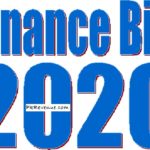ISLAMABAD: The government has brought massive changes to Income Tax Ordinance, 2001 through Finance Bill 2020.
EY Ford Rhodes Chartered Accountants highlighted the major changes introduced to Income Tax Ordinance, 2001 through Finance Bill 2020:
The definition of the term ‘industrial undertaking’ has been proposed to be expanded to include builders and developers for the purpose of import of plant and machinery.
A Pakistani company registered with the SECP after 15 November 2019 and having its own Pakistan Flag sea worthy vessel will be subject to fixed tax based on Tonnage.
Administration and collection charges in relation to deriving income chargeable to tax under the head ‘income from property’ proposed to be restricted to 2 percent of the rent chargeable to tax, as against the existing 6 percent.
Individuals and AOPs can now opt for net income taxation in respect of ‘income from property’. Previously, this option was only available where such income exceeded Rs4 million.
Expenditure on account of utility bills is proposed to be disallowed if in excess of the limits on violation of conditions, as may be prescribed.
Expenditure attributable to sales made to persons required to be registered but not registered under the ST Act may now be disallowed under specified conditions.
Normal depreciation in the first year of use is proposed to be allowed to the extent of 50 percent. Similarly, in the year of disposal, normal depreciation is proposed to be allowed to the extent of 50 percent. Currently, full year depreciation is allowable in the year of acquisition and no depreciation is available in the year of disposal.
Lease payment deductions in respect of passenger transport vehicle not plying for hire is proposed to be restricted to the extent of principal cost of PKR 2.5 million.
Taxability of capital gains arising on disposal of immovable property revamped, depending upon the holding period. Further, rate of tax on such gains also proposed to be reduced by 50 percent.
Tax credit on donation given to an associate is proposed to be reduced.
Tax credit on enlistment is proposed to be restricted for companies opting for enlistment on or before 30 June 2022.
Deductibility of interest / profit on debt paid to foreign affiliates is proposed to be restricted to 15 percent of taxable income before depreciation, amortization and foreign profit on debt.
Permanent establishment of non-residents will also now be subject to minimum tax under section 113 of the Ordinance. Currently, minimum tax is only applicable on resident companies and AoPs.
Certain specified persons are required to prepare and furnish a Tax Profile to the FBR within the prescribed time. Non-furnishing of the Tax Profile may lead to non-inclusion of the name of the taxpayer in the ATL.
Wealth statement can now only be revised after seeking prior approval from the CIR.
The concept of self-assessment based on the complete return of income filed by a taxpayer is proposed to be subjected to processing through automated system to arrive at correct amounts of total income, taxable income and tax payable.
Concept of Assessment Oversight Committee is proposed to be introduced whereby a taxpayer may, pursuant to a notice issued under section 122(9), approach the Committee to settle its case by filing an offer of settlement.
For the purpose of filing an appeal before the ATIR, the condition of payment of 10 percent of the amount of tax upheld by the CIR(Appeals) is proposed to be inserted.
Rates of collection of tax at import stage from capital goods, raw material and finished goods proposed to be revamped by inserting a new Twelfth Schedule to the Ordinance. Rate of tax proposed to be reduced to 1 percent and 2 percent on capital goods and raw material imported by an industrial undertaking, respectively.
It is proposed that for all categories of taxpayers, tax paid at import stage will be a minimum tax except for industrial undertaking paying tax at the rate of 1 percent or 2 percent in respect of goods for its own use.
The rate of deduction of tax and the scheme of taxation under section 152 on payment to a permanent establishment of a non-resident person on account of sale of goods, rendering of services (including applicability of reduced 3 percent rate for specified sectors ) and execution of contracts is proposed to be synchronized with that of a resident person.
The rate of deduction of tax on account of supply of goods made from outside Pakistan under a cohesive business transaction is proposed to be reduced to 1.4 percent as against the current rate of 2.1 percent.
Toll manufacturing proposed to be treated as sale of goods for the purposes of deduction of tax under section 153.
Receipts on account of engineering services are proposed to be subject to withholding tax at 8 percent as against the current rate of 3 percent.
The withholding tax statements under section 165 of the Ordinance are proposed to be filed on a quarterly basis as against the current requirement of bi-annual filing.
Agencies including NADRA, FIA, provincial excise and taxation departments, utility companies etc. are now required to provide information to the FBR on real-time basis.
Tax audit under section 177 of the Ordinance may be conducted electronically.
Where a taxpayer fails to furnish records, documents, books of accounts or is unable to provide sufficient explanation regarding any defects in the records, the CIR can determined the taxable income on the basis of sectoral benchmark ratio prescribed by the FBR.
Collection of tax under sale by auction would inter-alia include renewal of a license previously sold through auction. Further, where payment is received in installments, it is proposed that advance tax be collected on each installment.
Following provisions relating to collection / deduction of tax at source are proposed to be omitted –
• 148A – Tax on local purchase of cooking oil or vegetable ghee by certain persons
• 235B – Tax on steel melters and composite units
• 236D – Advance tax on functions and gatherings
• 236F – Advance tax on cable operators and other electronic media
• 236J – Advance tax on dealers, commission agents and arhatis etc.
• 236R – Collection of advance tax on education related expenses remitted abroad
• 236U – Advance tax on insurance premium
• 236X – Advance tax on tobacco
Withholding tax rate on dividend is proposed to be synchronized with the charging rate.
The bill proposes to impose tax at the rate of 4 percent on import of finished pharmaceutical products not manufactured in Pakistan as certified by Drug Regulatory Authority of Pakistan.
Where the sukuk holder is a company, the rate of tax to be deducted under Section 150A on account of return on investment in Sukuk is proposed to be increased from 15 percent to 25 percent.
Withholding tax rate on dividend is proposed to be synchronized with the charging rate.
Profit on debt derived by an individual from a debt instrument issued by the Federal Government and purchased exclusively through a bank account maintained abroad, a non-resident Rupee account repatriable (NRAR) or a foreign currency account maintained with a banking company in Pakistan is proposed to be subject to withholding tax at the rate of ten percent as a final discharge. Further, such taxpayers would fall outside the purview of the Tenth Schedule even if their name does not appear on the ATL.
Payment of dividend to a non-resident person would not attract the provisions of Tenth Schedule to the Ordinance.
Payments to non-resident persons on account of royalty, fee for technical services, insurance and re-insurance premium and other general payments (not specifically covered) are proposed to be excluded from the ambit of the Tenth Schedule.


